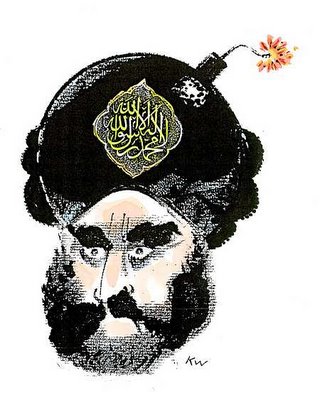It appears that once again, Sgt. Mom has to bring out the Mallet of Loving Correction that she has shamelessly copied from John Scalzi, and explain the whole concept of ‘freedom of thought’ and its fraternal twin, ‘freedom of expression’ to the inhabitants of those (mostly but not always) quarters of the world usually known as ‘Islamic-run hellholes.’
See here, we in the western world are known for a good many things some of them good, some of them bad but one of them is a sense of logic, and another is the freedom to speak our thoughts, suppositions and criticisms on any matter. Openly, freely, and through any medium available to us … without fear of prosecution by the forces of law and order. Unless, of course, we are inciting violence … umm, which to put it plainly, you guys seems to have a problem with. Actually, some of our own very dear Established and Housebroken Lapdog Media have a problem with that too, but that is an issue for another day.
